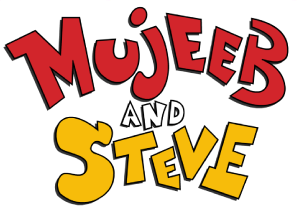HISTORY
Relations between Western and Muslim societies through time
Multiple viewpoints on historical events
Impact of contact, conflict, and conquest on civilizations
Contributions of Islamic civilization in the world
OBJECTIVES
- Understand how current inequities have roots in history
- Identify groups that still don’t have equal rights today
- What factors determined a hierarchy of rights and privileges
Suggested Videos
- Episode 5 – My Favorite Person
- Episode 6 – God Salesman
- Episode 8 – The “J” Word
- Episode 11 – Margarine – Spread by the Sword
- Episode 13 – Islam vs Muslim
CASE STUDIES 1:
Different Perspectives on History
Scenario
Mr. Kellog has just shown a video in his history class about the thriving scientific and literary culture from Muslim Spain and Iraq during the European “dark ages”. The class has been broken into groups to discuss the documentary. At one table a loud argument is taking place between Sahel a Muslim student and a Nick his classmate. They both have very different perspectives. Sahel is proud of his history and appreciates Mr. Kellog for the video. Nick believes the documentary is full of bias and presents a rosy image of a very violent culture. Nick has many examples to support his statements. How can Mr. Kellog navigate this argument and is there any correct interpretation of history?
Relevant Video
- Episode 11 – Margarine - Spread by the Sword
- Episode 5 – My Favorite Person
Questions for Reflection
How is it possible for such different perspectives to exist about the same historical period?
What are some strategies to discern fact from opinion and bias?
What are some ways to bring Sahel and Nick together towards a common understanding?
Teaching Points
Historical narratives are often accompanied by bias
Certain historical narratives are promoted over others. What are some of the reasons for this?
Muslim’s have made many untold contributions to civilization around the world. As is the case with other minority cultures in North America, these contributions are often hidden by a more dominant Euro-centric narrative
Prejudices are often a result of far reaching historical events and circumstances. These prejudices may remain today and impact our lives
Learning Objectives
- Students should understand there are multiple perspectives on history that are never bias-free
- Many cultures and religions have made untold contributions to the world we know today, often these contributions are unheard
- Students should learn to recognize the biases they may hold due to the circumstances of their birth and educational environment


